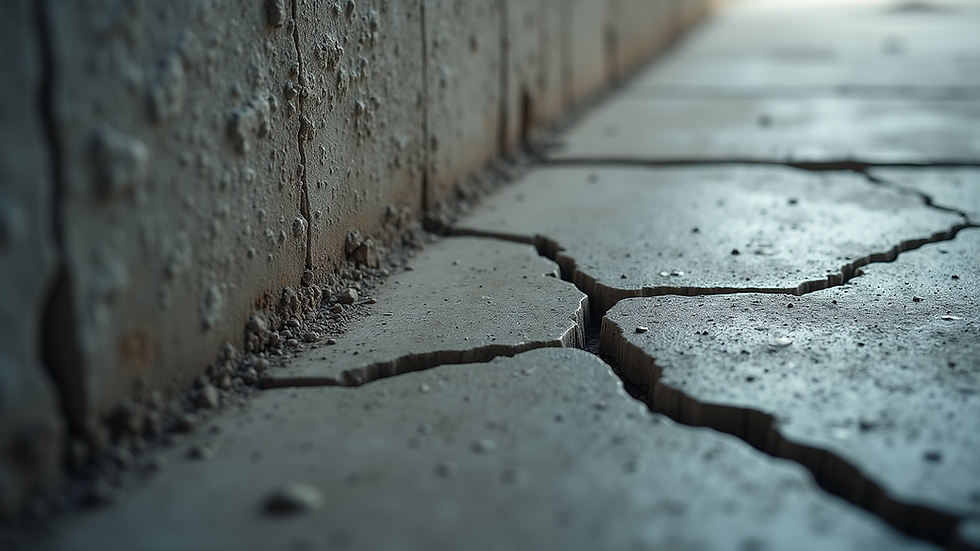Home Inspections in West Island: What to Expect
- aparinc21
- Oct 13, 2025
- 3 min read
Buying or selling a home is a major step. A thorough home inspection is a key part of this process. It helps you understand the condition of the property. It also gives you peace of mind. When you schedule a home inspection west island, you want to know what to expect. This guide will walk you through the process. It will explain what happens during a home inspection and what you should look for.
Understanding Your West Island Property Inspection
A home inspection is a detailed examination of a property. It covers the major systems and components. This includes the roof, foundation, plumbing, electrical, heating, and cooling systems. The inspector looks for any issues that could affect the safety or value of the home.
The goal is to identify problems before you finalize the sale. This helps you avoid costly surprises later. The inspection report will list any defects or concerns. It will also include recommendations for repairs or further evaluation.
When you book a west island property inspection, the inspector will spend a few hours on site. They will check both the inside and outside of the home. You can usually attend the inspection. This is a good chance to ask questions and learn about the property firsthand.

What Happens During a West Island Property Inspection?
The inspection follows a clear process. Here is what typically happens:
Exterior Check
The inspector starts outside. They look at the roof, gutters, siding, windows, and doors. They check for damage, leaks, or signs of wear. The foundation and grading around the home are also examined to ensure proper drainage.
Interior Check
Inside, the inspector tests the plumbing, electrical outlets, and heating/cooling systems. They look for water damage, mold, or structural issues. Walls, ceilings, floors, and windows are all part of the review.
Basement and Crawl Spaces
These areas are important for spotting moisture problems or foundation cracks. The inspector will check for signs of pests or poor ventilation.
Appliances and Fixtures
Built-in appliances and fixtures like sinks and toilets are tested to ensure they work properly.
Report Preparation
After the inspection, the inspector compiles a detailed report. This includes photos and notes on any problems found. The report helps you understand the home's condition and plan next steps.
It is important to remember that a home inspection is not a guarantee. It is a professional opinion based on visible and accessible areas. Some issues may not be detected without specialized testing.

What is the Biggest Red Flag in a Home Inspection?
One of the most serious concerns during a home inspection is foundation problems. Cracks, shifting, or water damage in the foundation can lead to major structural issues. These problems are often costly to fix and can affect the safety of the home.
Other significant red flags include:
Roof damage or leaks
A damaged roof can cause water intrusion and mold growth.
Electrical hazards
Outdated or faulty wiring can be a fire risk.
Plumbing leaks
Persistent leaks can cause water damage and increase utility bills.
Mold or water damage
These issues can affect indoor air quality and health.
If the inspector finds any of these red flags, it is important to get a specialist’s opinion. You may need to negotiate repairs or reconsider the purchase.

How to Prepare for Your West Island Property Inspection
Preparation helps the inspection go smoothly. Here are some tips:
Clear access to key areas
Make sure the inspector can easily reach the attic, basement, electrical panel, and furnace.
Turn on utilities
Water, electricity, and gas should be on so systems can be tested.
Provide documentation
If you have maintenance records or warranties, have them ready.
Attend the inspection
Being present allows you to ask questions and see issues firsthand.
Take notes
Write down any concerns or follow-up questions.
By preparing well, you help the inspector do a thorough job. You also gain valuable knowledge about the property.
What to Do After Your West Island Property Inspection
Once you receive the inspection report, review it carefully. Focus on:
Safety issues
These should be addressed immediately.
Major repairs
Discuss with the seller who will cover the cost.
Maintenance tips
Use the report to plan future upkeep.
If you are buying, you can use the report to negotiate the price or request repairs. If you are selling, the report helps you disclose any known issues and build trust with buyers.
Remember, a home inspection is a tool to make informed decisions. It is not about finding a perfect home but understanding what you are buying or selling.
A thorough home inspection west island is an essential step in any real estate transaction. It provides clarity and confidence. By knowing what to expect, you can approach your west island property inspection with calm and assurance. This process protects your investment and helps you move forward with peace of mind.
_edited_edited.jpg)

.png)



Comments